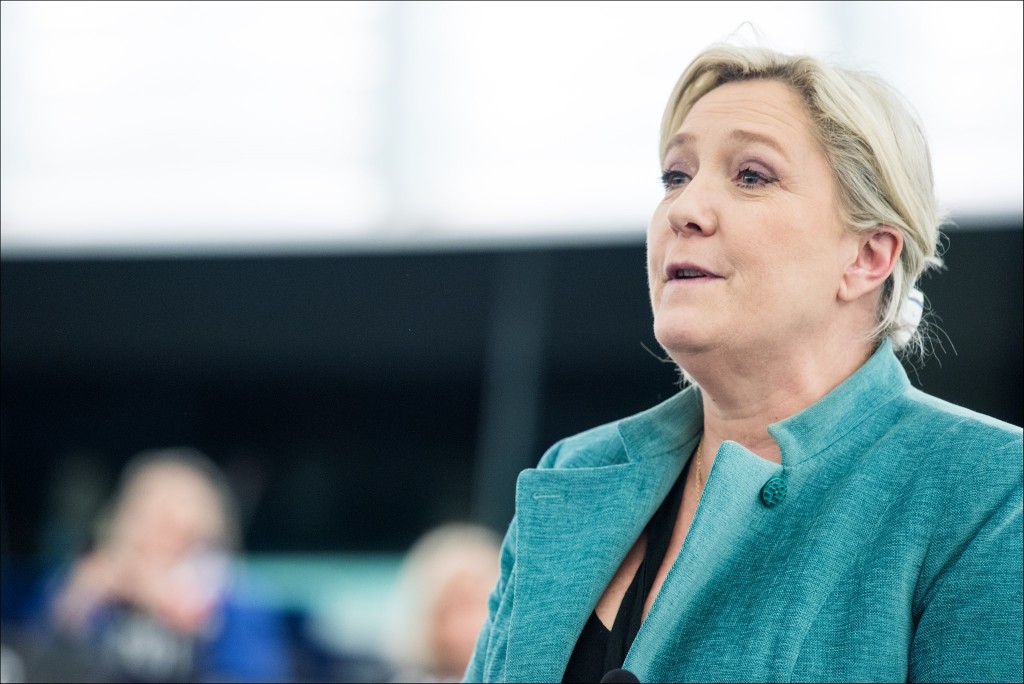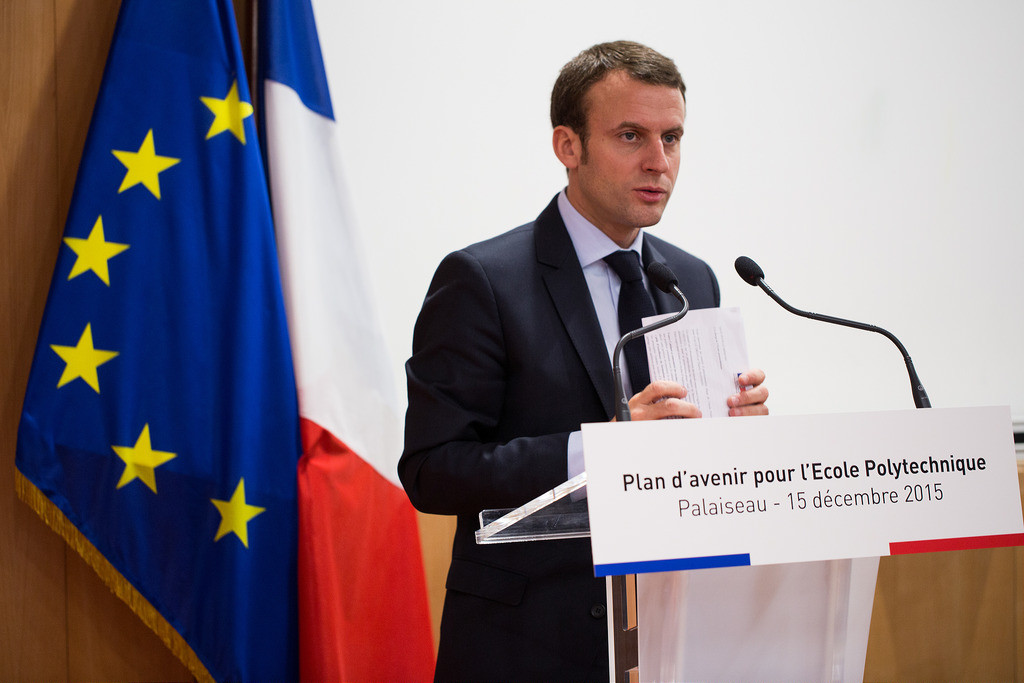
“Their world is crumbling. Ours is being built.” The vice-president of France’s far-right, populist Front National (FN) party tweeted this message on November 9, as Donald Trump’s victory became evident. The FN’s prominence in the upcoming French presidential election poses yet another threat to the globalized, liberal world order which has recently endured two successive blows: Brexit and the election of President Trump. If the FN’s candidate, Marine Le Pen, becomes the next French president, that will be a third strike with immediate consequences for the European Union, and far-reaching effects for the world.
The French presidential race is heating up; all major political parties have selected their final candidates. Les Républicains (the conservative, center-right party) have chosen François Fillon. The FN’s unopposed candidate is Marine Le Pen. Current President Hollande’s ailing Socialistes swung left in primaries with the victory of candidate Benoît Hamon. Emmanuel Macron, former economy minister in President Hollande’s government, has launched an independent campaign promoting center-left principles. Finally, Jean-Luc Mélenchon will run as the candidate for the Communist party.
Similarities have emerged between the U.S. election cycle and the French campaigns. Marine Le Pen is the clear analogue to Donald Trump. Le Pen’s FN is a party of “France-first” isolationists and populists who feed on fears about immigration and the “islamization” of France. Though the Républicain François Fillon has many important differences from Hillary Clinton, both can be portrayed as the politically experienced “insider” candidate as well as reasonably centrist picks. Rather like Clinton, Fillon may be brought down by a scandal his campaign cannot shake – an allegation that Fillon’s wife Penelope did no real work while drawing an official salary as Fillon’s parliamentary assistant. The “Penelopegate” scandal threatens to ruin Fillon’s chances, damaging his anti-corruption reputation and challenging his small-government platform.

If Fillon’s scandal brings down his campaign, it will be up to either a candidate from the left or the independent Macron to counter Le Pen. Le Pen is widely expected to make it through the first round of elections in April, so the real challenge will occur during the runoff. The French presidential election occurs in two rounds, with the second round functioning as a runoff between the two candidates with the highest percentages of the vote from the first round.
The run-off mechanism is a useful structure. It allows voters to make their voice heard in the first round, but then cast a vote “against” one candidate rather than “for” the other in the second round to block a candidate viewed as unsuitable. The time between the two elections allows political leaders to rally their electorates to do just that. For example in 2002, Jean-Marie Le Pen, Marine Le Pen’s father and former head of the FN, captured enough votes to make it to the second round of voting against conservative Jacques Chirac. Massive popular protests followed, and socialists and conservatives rallied together to defeat Le Pen in a historic landslide. Chirac was elected with over 82% of the vote.
The best initial hope was that something similar would occur this year; that whether Fillon, Macron, Hamon, or Mélenchon was left standing to counter Le Pen, all the candidates’ former supporters would rally together to elect anyone but Le Pen. However, Emmanuel Macron’s unprecedented success as an independent candidate has redefined the story of this election cycle. Macron has combined economic reformism, social liberalism, and–perhaps most importantly–personal dynamism while on the campaign trail.
In an election cycle where electing someone, anyone other than Le Pen was thought to be the best case scenario, Macron has introduced an “outsider” political movement that is not based on fear and exclusion. Practically, Macron as President could invigorate the French economy, promote tolerance for immigrants in France, and strengthen the European Union. Symbolically, Macron suggests something even more important: that a centrist political movement might inspire the public and win. If Macron succeeds, he will have proven that the popular movement is not only a tool of the far right.
The views expressed by the author do not necessarily reflect those of the Glimpse from the Globe staff, editors or governors.







